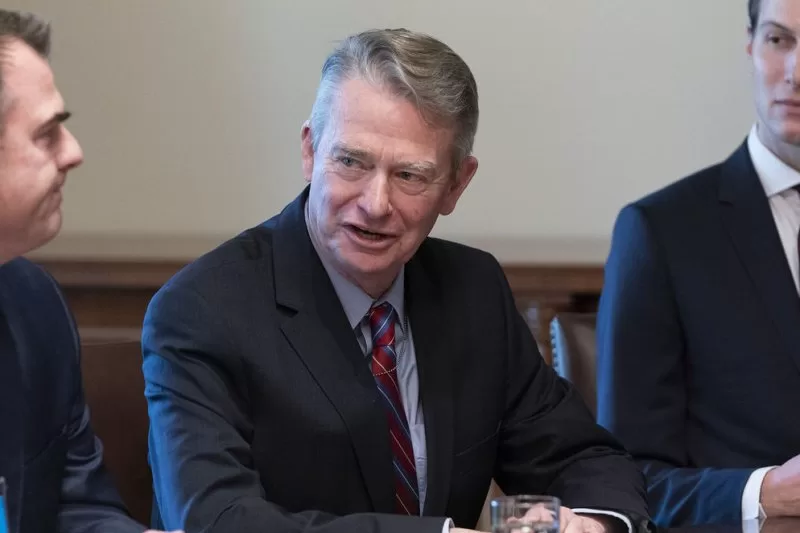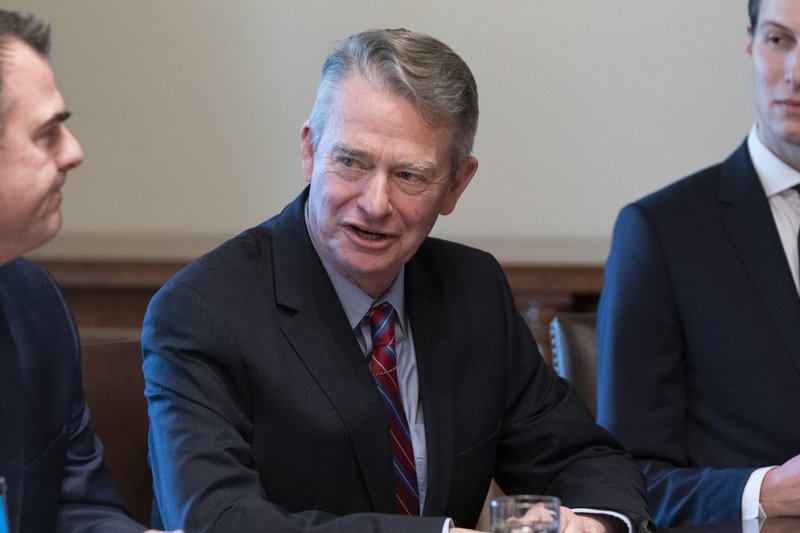Idaho has asked the Supreme Court to let stand a ban on gender-affirming healthcare that Gov. Brad Little signed in April of last year. File Photo by Chris Kleponis/UPI |
License PhotoFeb. 20 (UPI) — Idaho has asked the Supreme Court to allow the state to enforce its felony ban on minors receiving gender-affirming healthcare, stating the scope of the lower court’s decision was too broad.
Idaho Attorney General Raul Labrador filed the emergency motion Friday though it was only made public Monday.
Labrador said the Supreme Court should narrow the lower court’s order as challengers only attacked certain parts of the law.
“The state has a duty to protect and support all children and that’s why I’m proud to defend Idaho’s law that ensures children are not subjected to these life-altering drugs and procedures,” Labrador said in the Monday statement.
Idaho was among the first to criminalize the administration of gender-affirming healthcare for minors with up to 10 years’ imprisonment when Gov. Brad Little signed House Bill 71 into law in April.
Little signed the law, which is also known as the Vulnerable Child Protection Act, amid a nationwide Republican effort to ban gender-affirming healthcare for minors despite every major medical association in the United States in support of adults and minors receiving such treatment.
The ban was challenged in July by two Idaho families with transgender children receiving medical care that would be prohibited under H.B. 71.
In late December, just days before the law was to go into effect on Jan. 1, a court ruled in the families’ favor, stating the ban on hormones, puberty blockers and other medically supported practices violates the Due Process Clause and the Equal Protection Clause of the 14th Amendment.
Idaho appealed the ruling but lost. Late last month, the Ninth Circuit Court of Appeals denied the state’s motion to stay the district court’s ruling without giving reason.
In the emergency ruling on Monday, Labrador and the Christian conservative Alliance Defending Freedom legal advocacy group asked the nation’s highest court to allow the state to enforce the ban amid litigation except on the two teenagers whose families brought the original challenge.
“The state-wide universal injunction here concerns Idaho’s Vulnerable Child Protection Act (VCPA), a statute regulating a list of medical procedures used to treat gender dysphoria in minors, and it goes far beyond any relief the Plaintiffs needed or had standing to seek,” the state said in the filing.
“The Plaintiffs both want access to a single procedure, but the injunction applies to all 20+ procedures that the VCPA regulates. The Plaintiffs are two minors and their parents, and the injunction covers 2 million.”
The state argues that the scope of the injunction is too wide and infringes on its sovereignty to enforce its own laws.
According to the Movement Advancement Project, 22 states have banned gender-affirming healthcare for minors, including five that make it a felony.

